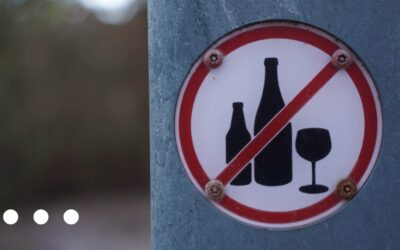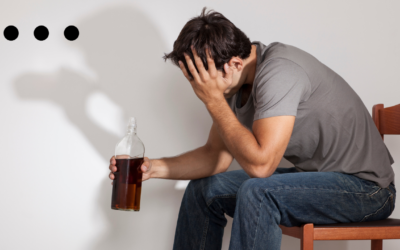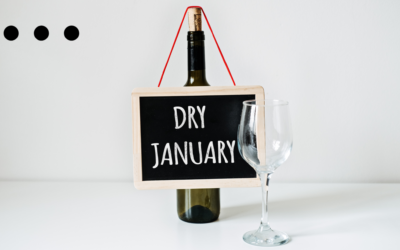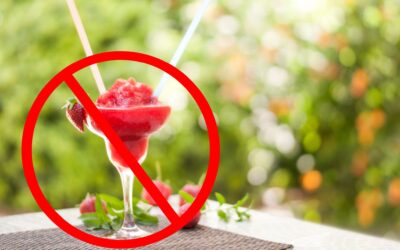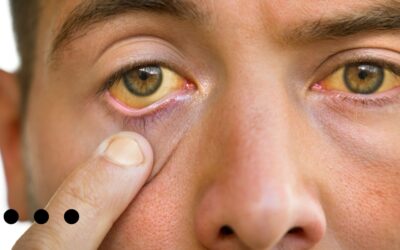Every April, many communities observe Alcohol Awareness Month, an annual initiative for raising awareness about alcohol consumption and alcohol use disorder (AUD). This month serves as a reminder of the importance of understanding alcohol use in general, the potential...
Alcohol
Alcohol addiction treatment is designed to help individuals overcome their dependence on alcohol and return to a healthy lifestyle. Treatment typically involves a combination of therapies, medications, and lifestyle changes. Cognitive-behavioral therapy (CBT) is one of the most commonly used forms of treatment for alcohol addiction. CBT works by helping individuals identify and modify behaviors and thoughts that lead to excessive drinking. In addition, medications may be used to reduce cravings and withdrawal symptoms. Examples of medications used for alcohol addiction treatment include naltrexone and acamprosate (Lintzeris et al., 2020).
Lifestyle changes are also important in alcohol addiction treatment. These changes may include avoiding triggers that lead to drinking, such as certain people or places, as well as engaging in activities that promote sobriety. Exercise, nutrition, and stress management are also important components of treatment. Finally, support from family and friends can be invaluable in helping individuals sustain their recovery (Mackay et al., 2017).
In addition to the above treatments, there are a number of additional resources available for individuals struggling with alcohol addiction. These include support groups, such as Alcoholics Anonymous, and residential treatment programs. Treatment programs often combine various therapies and medications with individual and group counseling (Kranzler et al., 2016).
Overall, alcohol addiction treatment is a multi-faceted process that can help individuals overcome their dependence on alcohol and achieve long-term sobriety. With the right combination of therapies, medications, lifestyle changes, and support, individuals can successfully manage their addiction and regain control of their lives.
Explore the articles below for more information, resources, and guidance on alcohol addiction, treatment, and recovery.
References:
Kranzler, H. R., Burleson, J. A., Delucchi, K. L., & McKay, J. R. (2016). Treatments for alcohol use disorder: A review of the evidence. Neuropsychopharmacology, 41(1), 294–312. https://doi.org/10.1038/npp.2015.203
Lintzeris, N., Gartner, C. E., Bruno, R., Campbell, G., Larance, B., Mattick, R., … & Degenhardt, L. (2020). Medications for Alcohol Use Disorder: A Review. Journal of Addiction Medicine, 14(3), 155–166. https://doi.org/10.1097/ADM.0000000000000541
Mackay, S., Stockwell, T., & Chikritzhs, T. (2017). A systematic review of interventions for the treatment and management of alcohol use disorder and comorbid mental health conditions. Addiction, 112(7), 1164–1179. https://doi.org/10.1111/add.13685
The Hidden Price: Understanding the True Cost of Alcohol Addiction
Alcohol addiction is not just a personal health issue but a societal concern. Approximately 29.5 million people ages 12 and older in the United States struggle with alcohol use disorder. This widespread issue impacts individual lives and significantly burdens the...
Guide to Hosting an Enjoyable Sober Super Bowl Party: Tips for a Fun, Alcohol-Free Celebration
Super Bowl Sunday is synonymous with excitement, friends, and, often, alcohol. However, for those embracing sobriety, whether due to recovery, health, or personal choice, this day can pose a unique challenge. How do you partake in this American tradition, keeping it...
Embracing Dry January: Your Ultimate Guide to a Sober Start
January marks not just the beginning of a new year but also the start of a transformative journey for many – Dry January. This annual challenge, embraced by millions worldwide, invites individuals to experience a sober lifestyle by giving up alcohol for the first...
“Alcohol Near Me” – Has Greater Alcohol Accessibility Increased Use & Abuse?
From colonial times to the present day, alcohol has always been a part of American culture. What has changed is the availability of booze, brews, and cocktails. From pre-mixed drinks to beer vending machines to liquor delivery services, you can find “alcohol near me”...
Why Sweet Alcoholic Drinks Can Be Dangerous
Sweet, sugary, or fruity alcoholic drinks are popular in bars and social gatherings. But can they also make you drink more? Sweet alcoholic beverages seem harmless at first, you don’t taste the bitter spirit in there, but can that be a dangerous thing? Let’s explore...
Isn’t Alcohol a Stimulant?
In some ways, alcohol is a confusing and contradictory drug. Despite being one of the most widely consumed substances in the world, there’s still some confusion about whether or not alcohol is a stimulant. To answer this debate, it’s important to understand the...
All About Alcoholic Hepatitis
The liver can process up to a certain amount of alcohol before its cells start deteriorating, and its capacity to regenerate tissue diminishes, leading to scarring and loss of functionality. Alcoholic hepatitis is the inflammation of the liver caused by drinking...
Alcohol, Domestic Abuse, And Intimate Partner Violence
Alcohol is a drug that affects our bodily functions and behaviors. One area where alcohol may be particularly risky is intimate partner conflicts. Data shows that alcohol use is rampant in domestic abuse cases. This article will explore the ways alcohol plays a role...
Do Hangovers Get Worse As You Get Older?
A hangover is a physical and emotional reaction to drinking too much alcohol, usually due to binge drinking. If you have ever had one, you know they’re not a pleasant experience. Additionally, much has been said about how they progressively worsen. This article will...
Submit your favorite sober brand to be featured in AT Magazine.
We want to know if you love a brand, company, or organization that you feel has helped you in your sobriety! Provide the name and URL for the brand, as well as why you love this brand. Brands can include anything from non-alcoholic beverages and sober merchandise companies to recovery bloggers and influencers.

